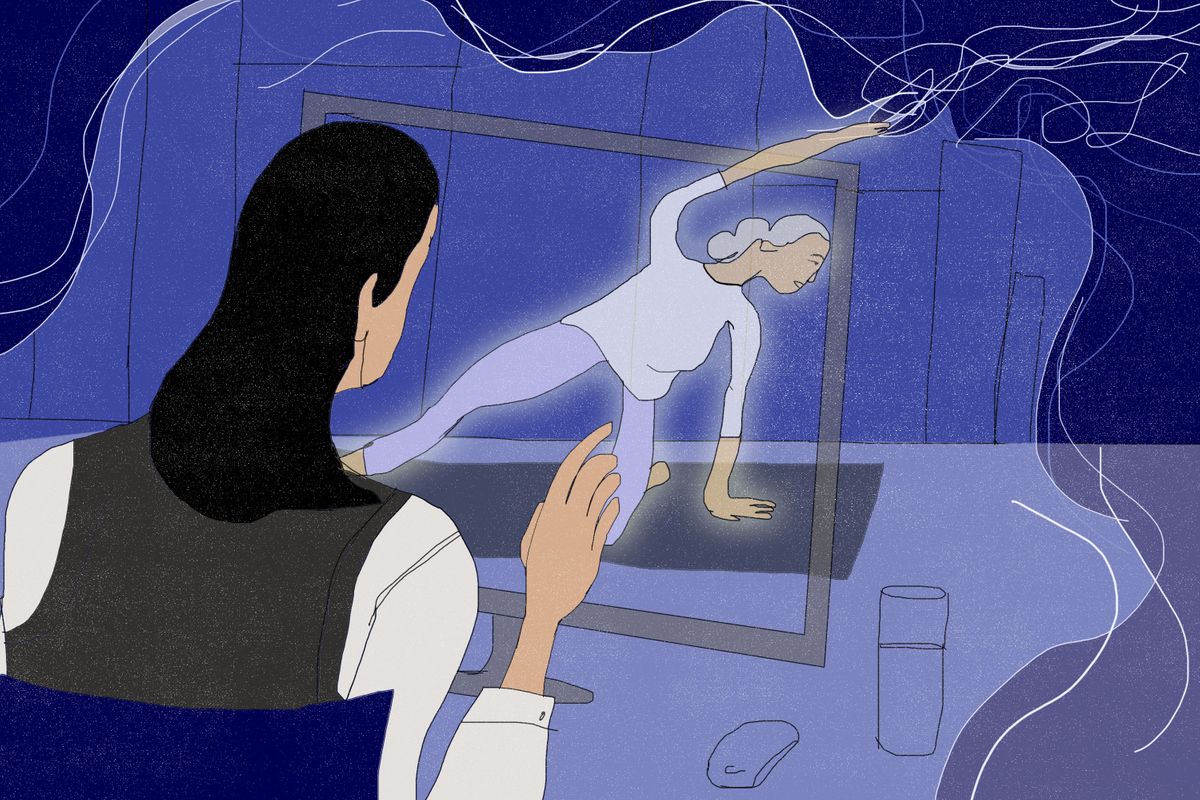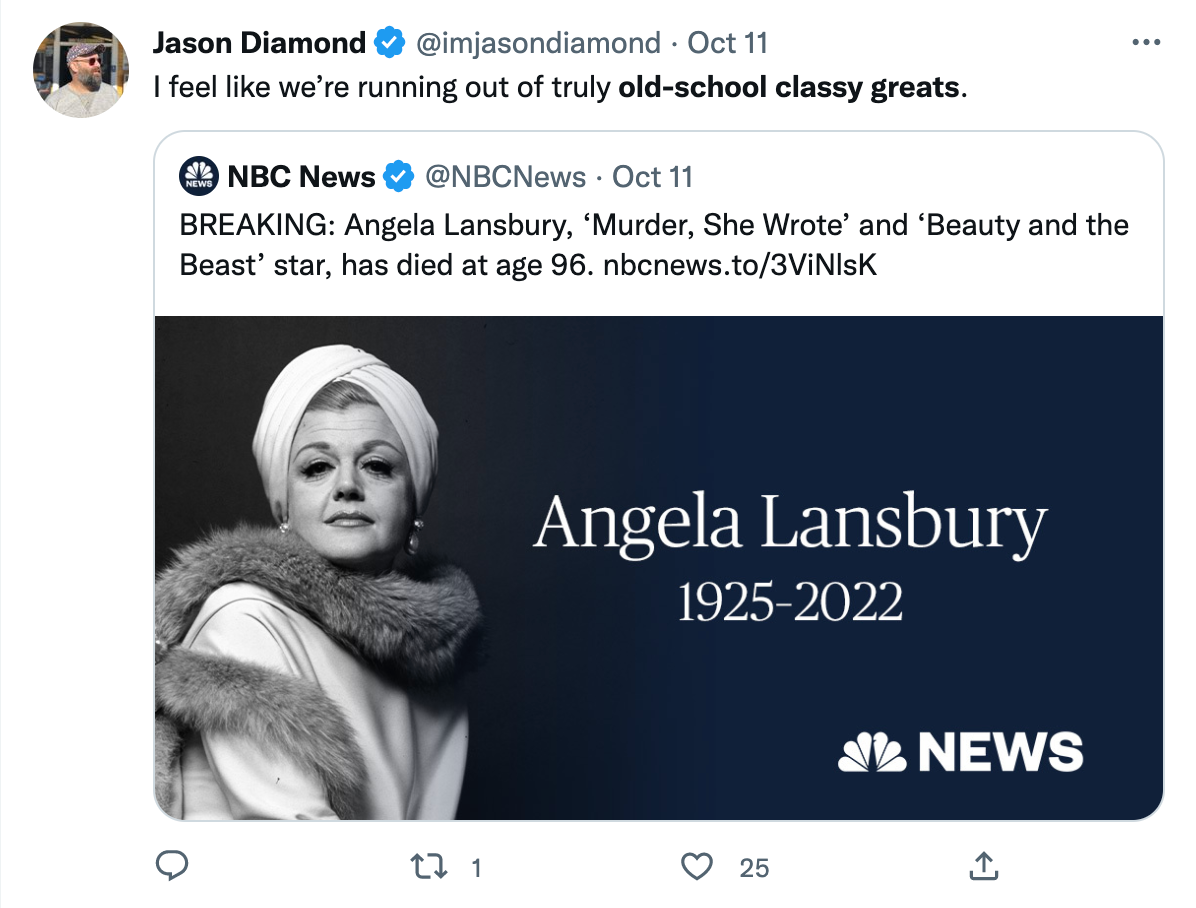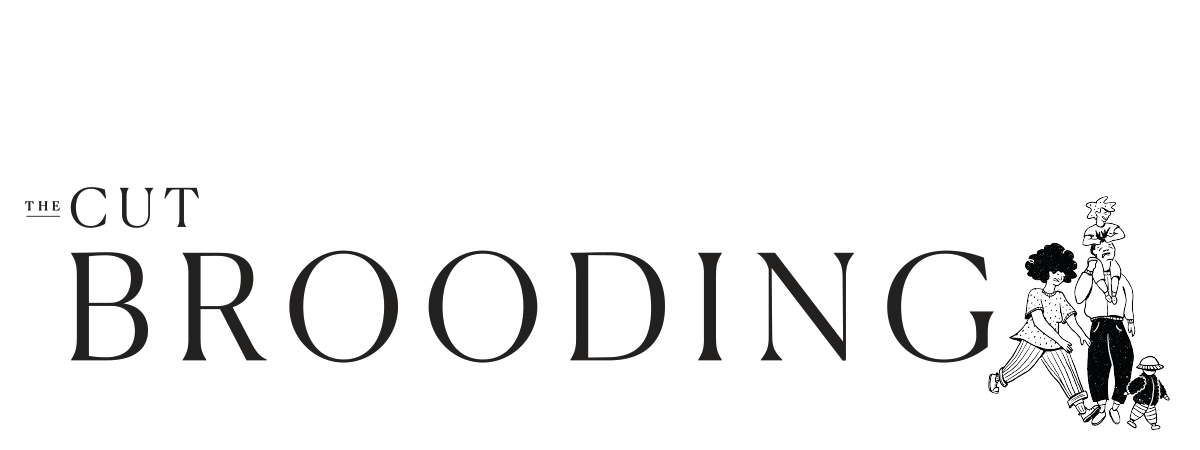 | ![]() | | Illustration: Hannah Buckman | | | | As the veil once again thins between the worlds of the living and the dead, I think it might be time to do something about my late mother’s Facebook account. Since her death in January 2021 I have marked her passing in many ways, but I haven’t managed to deal with this task. Maybe this sounds stupid, but I like having her on there. I like that I can see that in March 2019 she indicated she would attend an “Owl Prowl Wine and Dine” hosted by the Vermont Institute for Natural Science, and that in December 2018, deep into her septuagenarian yoga practice, she expressed interest in an event called “Juicy Core: A Psoas Integration” at her local yoga studio. |
| But I know that soon enough her account will probably be commandeered by a hacker and will start sending messages to everyone she knew, and this will be upsetting to all of us. It will feel like something profane that could have easily been prevented. Everyone will know that I am the person whose job it was to prevent it. I have to do something about her account before that happens. When my father died, I didn’t have to think about this because it was 2005 and Facebook at that time was only available to people with an email address ending with .edu. |
| I go back and forth about my status as an adult orphan. Sometimes it feels absurd for anyone to call themselves that. Other times it feels like the central thing that I am. I first heard the term “adult orphan” used by the author Samantha Irby, whose parents died when she was a teenager. That feels like a legitimate kind of orphanhood, where you wonder how a person made it all by themselves. My orphanhood feels fake and embarrassing. |
| Can a 40-year-old really call themselves an orphan? There really isn’t anything in life more precedented than parents dying, is there? The very idea of “adult orphanhood” is stolen valor. Children are orphans. It feels like the maladaptive behavior of people who grew up in their parents’ shadow. Or like grasping for something on which to hang your hat in the absence of any character that you’ve earned yourself. Going around calling yourself an adult orphan reminds me of a character in Nicole Holofcener’s film Friends With Money who, years after the birth of her child, still has nothing to talk about at a party except how she didn’t get an epidural. |
| Capitalism infantilizes us by suggesting that we can evade suffering by making a series of “smart choices,” and adult orphanhood as an identity marker rings childish in the same way: Did you think you could avoid it? Not only do we live in a spiritual vacuum that precludes any real philosophical entanglement with mortality, but when we do confront death, we make it into a special badge of identity. Like a bumper sticker. Adult Orphan on Board. |
| But then again, I feel like a piece of space trash since my mother died, errant and signalless. I’m an only child — in an adult’s body — and having no living parents causes severe vertigo sometimes. There is no one to dutifully call when I have gotten home safe from a trip. Relationships with parents are complicated, but I was close with mine. Before hanging up the phone my mother would tell me to “have a gentle day,” and she meant it. I am hard on myself and on others and she knew that about me the longest. Without that reminder, I have been lost. Tenderness receded from my life in the months following her death. I became remote and abstracted — like an orphan. |
| There used to be a hermit who lived down the road from my in-laws in Maine. He would mow his lawn, and that was the only time anyone would see him. His windows were covered in cardboard. I used to take jogs by his house and would always slow down (not that I was jogging very fast to begin with) to see if I could see anything inside. What on earth does a lone person do in their home all day? I would wonder that every time I passed. After my mother died I felt closer to understanding why some people close off the world. My perspective on the hermit changed. Shortly after she died, the hermit died too. The next time I jogged by I stopped and opened his mailbox, which I do realize is illegal. There was a mail-forwarding confirmation inside, and I learned that his name was David. |
| The lengthening of our species’ lifespan must be why it feels so odd to be an orphan even at 40. I keep telling myself that it’s normal for parents to die, but also, new acquaintances keep asking me where my folks live, and they are surprised and apologetic when I tell them that my folks are not living. And then sometimes I attempt something awkward, like, “Well, it’s normal that people die.” Which, uttered in casual conversation with someone I barely know, does not sound normal at all. |
| Social media’s structuring influence on self-expression has a lot to do with how we talk about grief, just as it has shaped how we talk about love. (“I’m marrying my best friend” is a way of saying a lot with only a few words, which is probably one of the reasons why it has become a cliché.) The most common ways to react to death on social media are surprise and dismay, even when death often comes as no surprise at all. There are so many other shades of feeling, but surprise is the one we reach for. The boomers are now in their final decades of life (or so they would have us believe), and they might be the first generation for whom death comes as a genuine shock to those who witness it. |
| Another way that grief is processed on social media is with the increasingly popular reminder that “grief is not linear.” I see it everywhere, resonating like a desperate plea: Please, people, stop thinking of grief as linear! We are in constant need of this reminder because linear thinking, borrowed from a neoliberal logic of the marketplace, plays a big part in how we conceive of our lives. Our careers progress, our children grow, we chart our goals and accomplishments at leisure and work. We tick items off our “bucket lists”; we compare our progress to where we were this time last year. |
| None of this takes death’s inevitability into account, and when death comes, we are unprepared for its elliptical influence on our lives. The death of a parent makes you a child again, but also an elder, and you keep going back and forth between those two states, possibly until you yourself die. Then it’s your children’s turn to plunge into the same confusion. |
| Free-market economies demand progress, and we’ve all applied the imperative to improve on ourselves to varying degrees. This worldview is incompatible with the fact of our mortality. Grief sends us off a cliff, pumping our legs into thin air like the Roadrunner. Grief is not linear, and neither is love nor joy nor work, but we’ve managed to wrestle everyday survival into a series of units and badges, so now we experience our lives that way. |
 | ![]() | | We definitely are. They are dying. | | | | Given enough time, we probably will start to think of grief as linear. I believe in us — we can’t be stopped. Assuming the boomers actually do all die, grief is set to be big business. Everyone’s going to be talking about it! I’m confident that some enterprising person will create an app that will contextualize the “five stages of grief” as a game to progress through, complete with points and bar graphs, and I predict this app will be a smash hit. |
| I’m sorry for joking around about grief, but it’s an old tradition: the clown in the burying ground. There is comedy at the core of grief. Losing my parents was like having the house lights come up on a play that I had thought was real life. Suddenly I became aware of a whole crew of people, technicians, stage managers, who had been putting on the whole thing. I had taken it all for granted and assumed it would just keep on going all around me. There is nothing left to do but laugh sometimes. |
| The slogan is true, anyway: Grief really isn’t linear. It pains me to admit this, but I think about my parents more since they’ve died than I did when they were alive. I was an ordinary asshole who only called my mother once a week. We emailed a lot, but days would go by where I wouldn’t reply. Same with my dad. He died when I was 22, nearing the zenith of my young-adult self-absorption. He never met my kids, the thought of which passes through me like a hot wind. |
| Families are infuriating, and one of the things about not having much of one left is that they only exist in your head, which for some people might seem ideal. While our parents are alive they are doing things that we have no choice but to react to. Sometimes they are making demands on us that we resent. Sometimes they are letting us down by not really knowing us. We feel these slights; they put us in little moods. We lash out at each other, or freeze each other out. Dead parents don’t do any of this, which is the upside. The downside is everything else. |
| I will send the death certificate to Facebook this week. It’s on my to-do list. Death is inevitable and grief is not linear: I’ve been repeating these truths to myself for years, trying to get to some higher plane of understanding. It hasn’t worked yet, and I doubt it ever will. Have a gentle day. |
| (1) Anderson Cooper has a new podcast about grief, and listen: It’s good. I found out about it while at the gym, where there is one TV that plays CNN and I always jog below it because the rest of the TVs are tuned to French stations. Anderson was being interviewed about the pod while carrying his baby around his house. It was very cute and made me want to tune in. |
| (2) I send my condolences to the author and bookstore owner Emma Staub, who wrote about losing her dad recently. I also want to thank her for introducing me to this poem by John Updike, Perfection Wasted. |
| (4) After reading several reviews, I’m looking forward to reading Namwali Serpell’s book The Furrows, which is about the disorientation of loss. |
| (5) Speaking of linear thinking, we’re moving on from the weekly J.J. Cale song. Progress, folks! Growth. What “of the week” would you like next? Snack? Grateful Dead tune? Quote from a momfluencer? I’m at your service. I’ll leave you with this, the Grateful Dead song that I listened to the most while writing this essay: Althea. |
| If you enjoyed Brooding, forward it to a friend. You might also like are u coming?, a weekly newsletter with late-night dispatches from a city ready to party. Sign up to get it in your inbox. |
| | |



